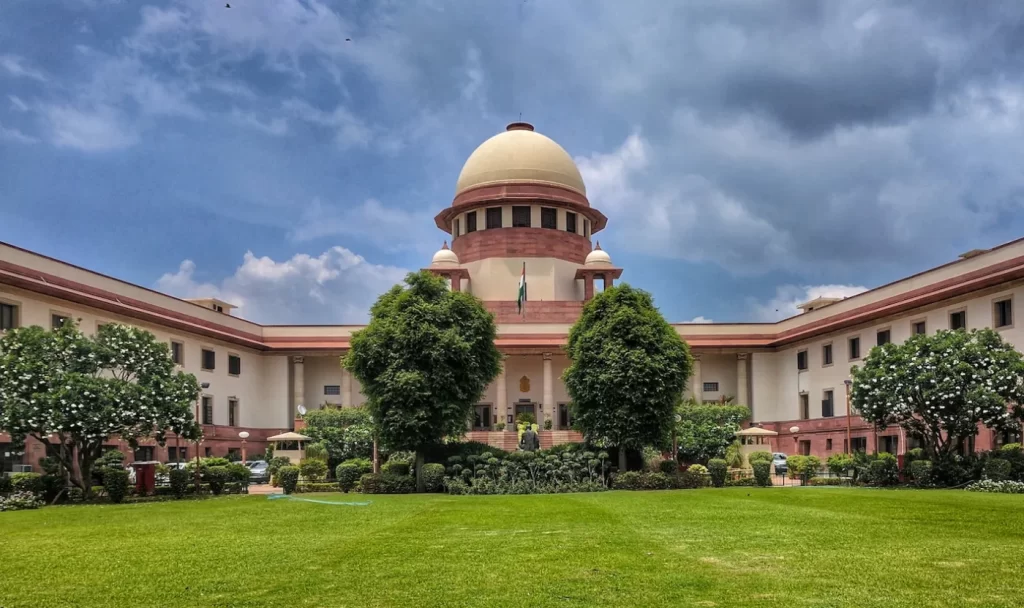Shreya Gupta
On 20th May 2025, the Supreme Court took a significant step to ensure uniformity and fairness across the country. It addressed the long-standing disparities in the salaries and service conditions of Presidents and Members of the District and State Consumer Commissions.
A bench comprising Justice Abhay S. Oka and Justice Ujjal Bhuyan took suo motu cognizance of the issue. The Court noted that the Central Government had notified the Model Rules in 2020 under the Consumer Protection Act, 2019. However, several States and Union Territories went on to frame their own rules under Section 102 of the Act.
This divergence led to considerable variations in the pay and allowances of commission members, with some receiving only the bare minimum remuneration, which the Court found to be highly unjust and counterproductive to the goal of effective consumer dispute resolution.
The Supreme Court emphasized that the Consumer Protection Act, 2019 was designed to ensure stronger consumer rights and an efficient redressal mechanism. It noted that the integrity and functionality of these quasi-judicial bodies hinge heavily on the competence and morale of their members, which in turn is closely linked to fair remuneration. Acknowledging that the existing situation undermined the very objective of the legislation, the Court invoked its powers under Article 142 of the Constitution to issue binding directions and bring about a uniform service structure for all States and Union Territories.
The Court ruled that the Model Rules notified by the Centre must be followed uniformly across the country, but with some key modifications to ensure fairness. First, Members of the State Consumer Commissions will now receive pay and allowances equivalent to District Judges in the super time scale as per the Second National Judicial Pay Commission.
Likewise, Presidents of the District Commissions will receive the same level of pay and benefits. Members of the District Commissions, on the other hand, will receive pay in line with the selection grade of District Judges. Importantly, certain allowances under the Model Rules, particularly those in Rules 7, 8, 9, and 11 — dealing with housing, transport, leave, and medical benefits — will no longer apply to these positions due to the revised pay structure.
A particularly humane and equitable aspect of the judgment is the protection of the last pay drawn by retired judicial officers or government servants appointed to these commissions. If their previous salary exceeds the newly prescribed one, they will continue to receive the higher pay (minus pension, if applicable). The Court also clarified that distinctions based on whether a member is part-time or full-time, or whether they come from a judicial or non-judicial background, have no basis in the 2019 Act. For the purpose of pay and allowances, all members will be treated as full-time members.
Further, while the Court’s directions will apply uniformly, it made an exception where any State or Union Territory is already paying a higher salary — such higher remuneration will not be reduced. The new structure will take effect retroactively from 20th July, 2020, the date the Model Rules originally came into force.
The Court also ordered that any arrears due under these new terms be cleared within six months from the date of the order. Additionally, States and UTs have been allowed to amend their existing rules to align with these directions, and they must report their compliance by 22nd September 2025, when the matter will be heard next.
In essence, the judgment is a powerful affirmation of the importance of judicial fairness and uniformity in administrative justice. It seeks to strengthen the consumer redressal system by ensuring that those entrusted with this responsibility are adequately and fairly compensated, which is crucial for the system’s credibility and effectiveness.
Case Title: In Re Pay Allowance of the Members of The UP-State Consumer Disputes Redressal Commission
Bench: Justice Abhay S. Oka and Justice Ujjal Bhuyan
Case Number: WP(C) No. 1144/2021
Instagram: Click here.
LinkedIn: Click here.
For Collaboration and Business: info.desikaanoon@gmail.com

